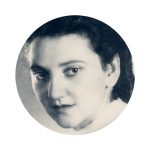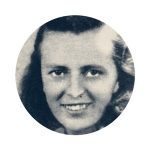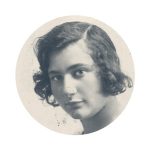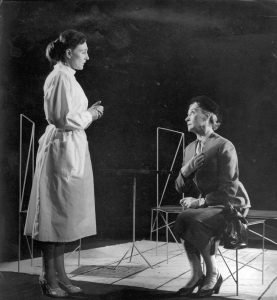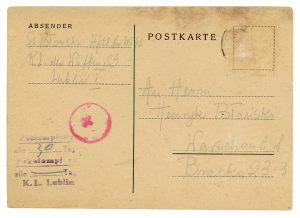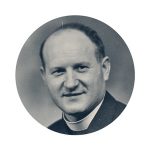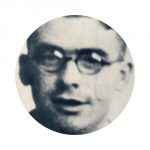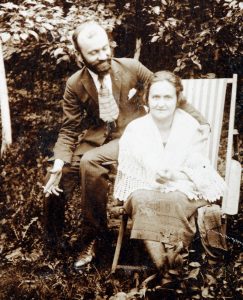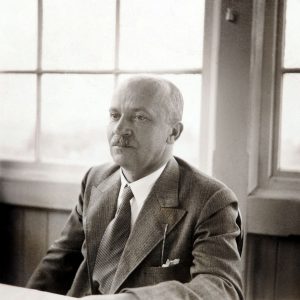When former prisoners talk of a “pharmacy”, they usually refer to a cabinet in the functionaries’ room, less commonly a separate small room, where the painstakingly gathered medicines, dressings and vaccines were kept. The actual pharmacy could only be used by the SS.
Initially, the medical equipment and dressings were obtained from Jewish doctors who arrived at Majdanek from the Czech Republic and Slovakia starting March 1942. In the later period, the scarce medication and vaccine supplies were secretly smuggled into the camp or cleverly concealed in food packages sent to the prisoners. Some of the tools and medicines used had been robbed by the Germans from Jewish transports heading towards death in the gas chambers. The most important contribution to the provision of prisoner infirmaries came from outside the camp in the form of aid provided by the Central Welfare Council and the Polish Red Cross. The institutions had secured permits that allowed them to send in provisions for individual prisoners, as well as medicines and dressings, at times even restorative meals for the sick. In the male infirmary, the function of pharmacist was performed by Jan Klonowski, MD and Rev. Witold Kiedrowski and in the female infirmary it was performed by Józefa Wdowska, Pharm.D.
The allowances from the SS pharmacy usually included highly insufficient amounts of dressings, some antidiarrheal medications (bolus alba) and painkillers (Schmerztabletten). The assortment available from SS pharmacies depended solely on the amounts stipulated by the main sanitation warehouse of the SS and was limited to only the most common medicines normally available from military pharmacies, including: antiscabious ointments, disinfectants and antiseptics, dressings and minor surgical instruments, as well as herbs and galena preparations, in rare cases ready-made medicines. After the hospital barrack in field V was opened, doctor Stefania Perzanowska received only a very small amount of medicines and instruments such as: a stethoscope, a thermometer, a syringe and a sterilizer.
The infirmary med-kits were still empty but the medicines obtained from outside the fence […] saved a lot of lives. There was never enough for everyone and they were usually administered to Poles, so Zosia Krasińska brought in the names of French and Belgian women so they could be helped by the legendary Lucyna […]. Hanka Protassowicka begged her friends for medicines for her Russian and Jewish patients. The infirmary was often successful in saving a patient’s life but the hunger and lack of any medical facilities quickly decimated our ranks. (…)
— Danuta Brzosko-Mędryk
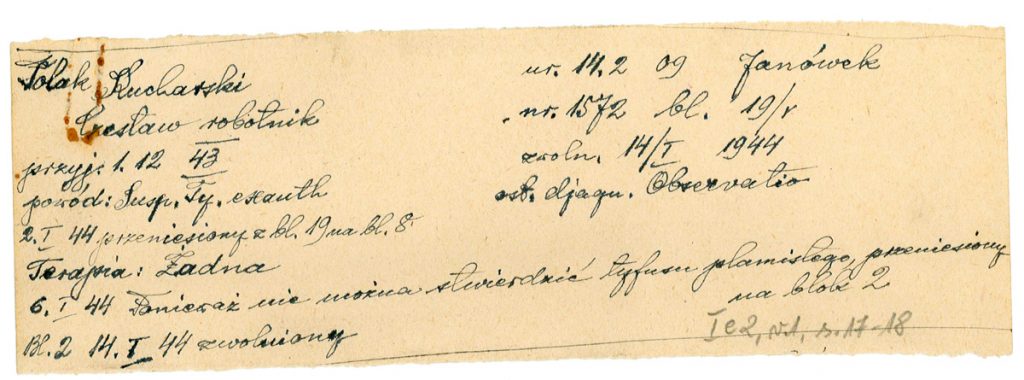
Czesław Kucharski’s medical record with the annotation: “Treatment: None”, PMM
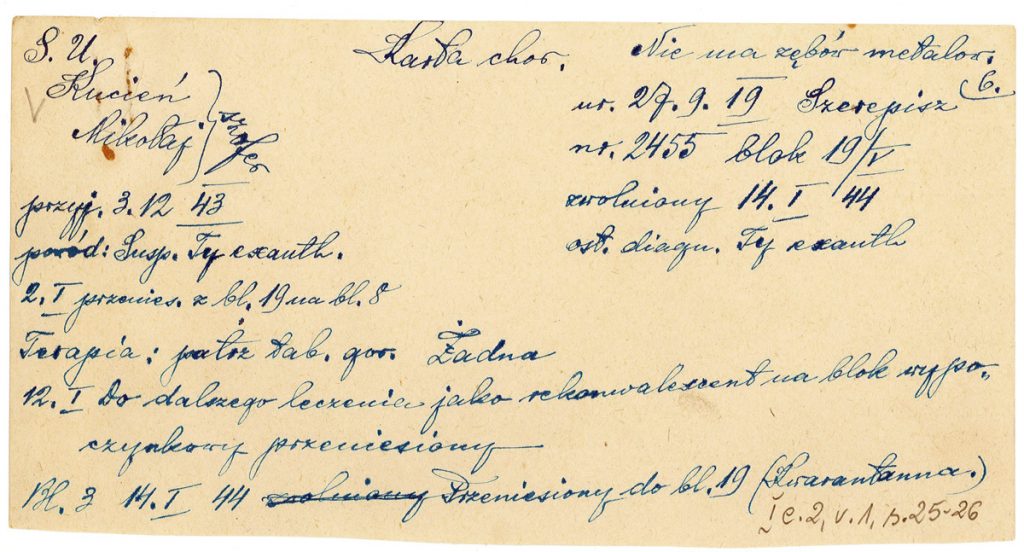
Mikołaj Kucień’s medical record with the annotation: “Treatment: None”, PMM
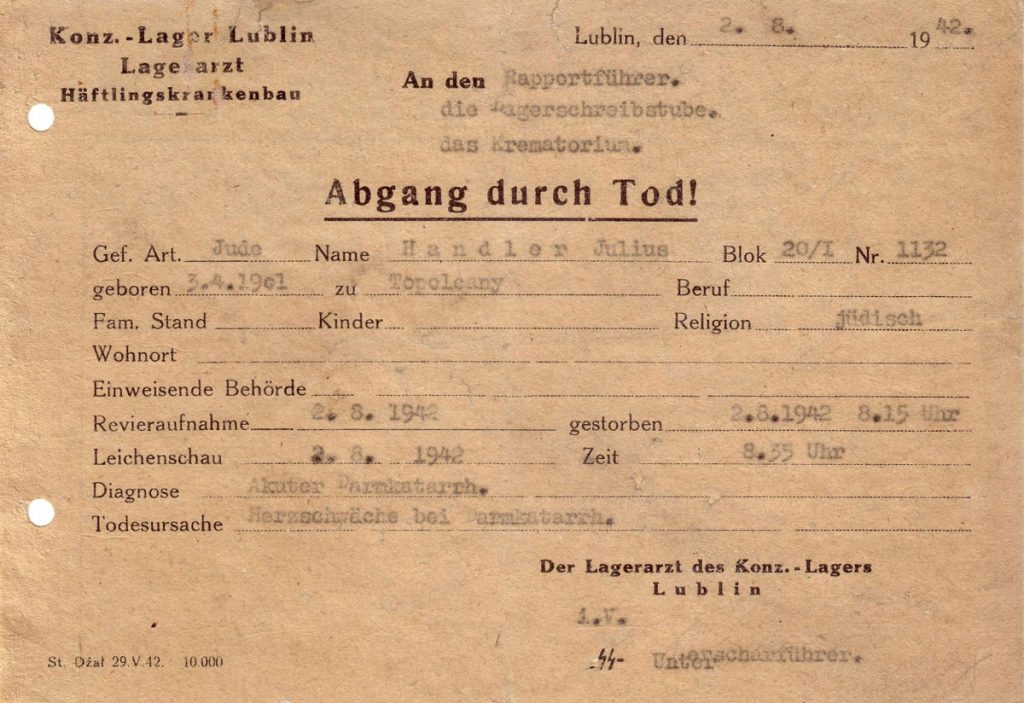
SS issued death certificate of Julius Handler, a Slovak Jew who died on August 2, 1942, PMM
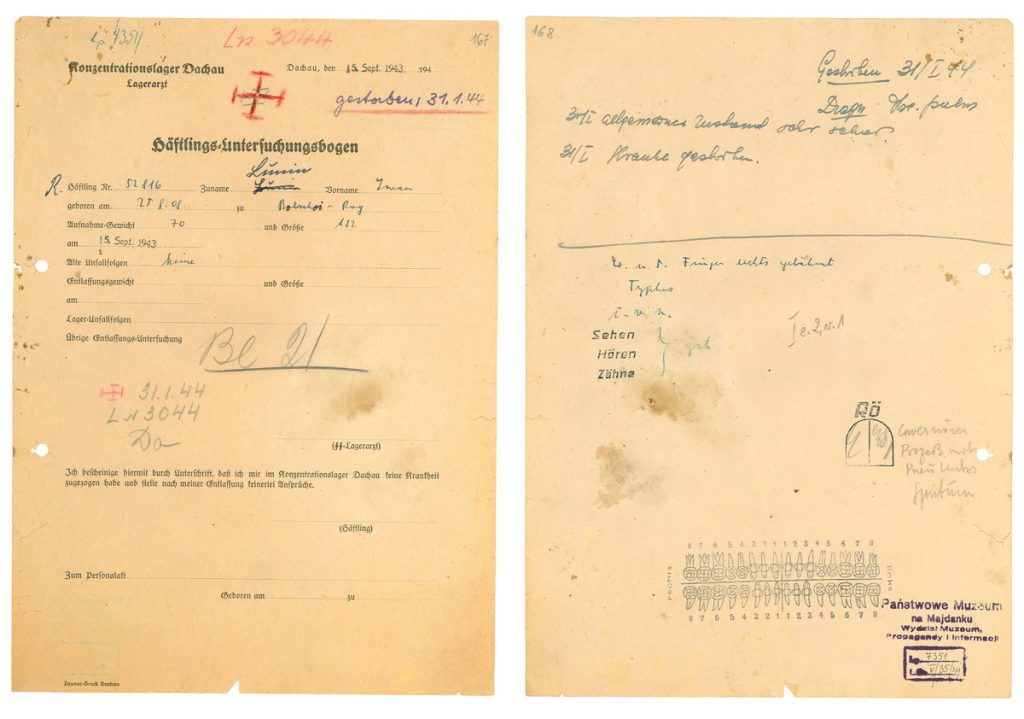
Hospital chart of Ivan Lunin. Died from tuberculosis on January 31, 1944, PMM
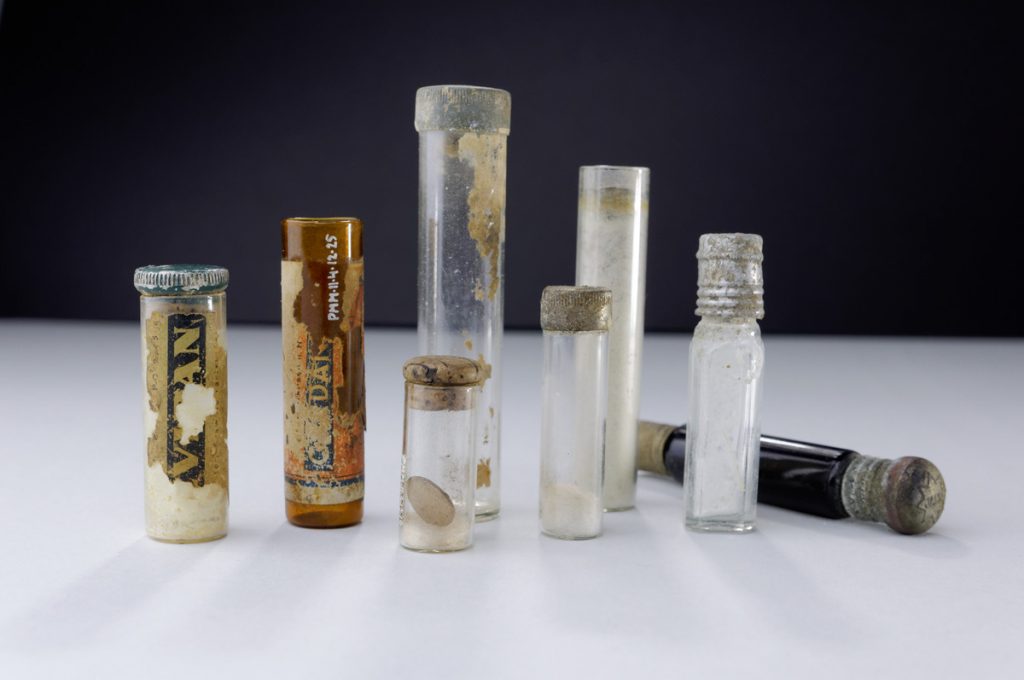
Objects found at the former camp grounds. Medicine vials, PMM
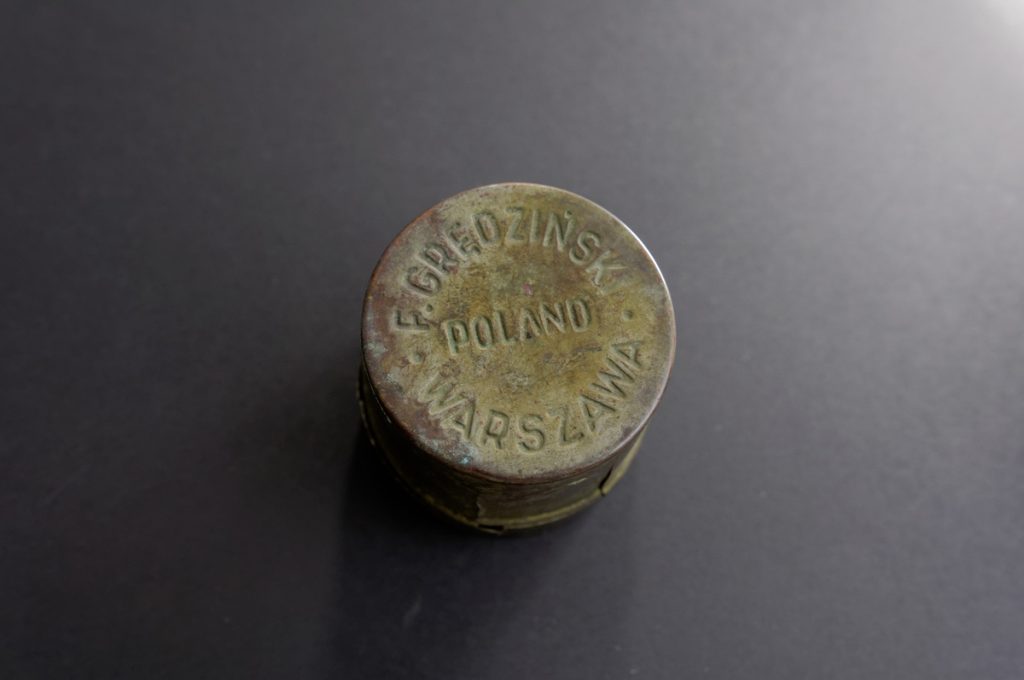
Objects found at the former camp grounds. Tourniquet packaging, PMM
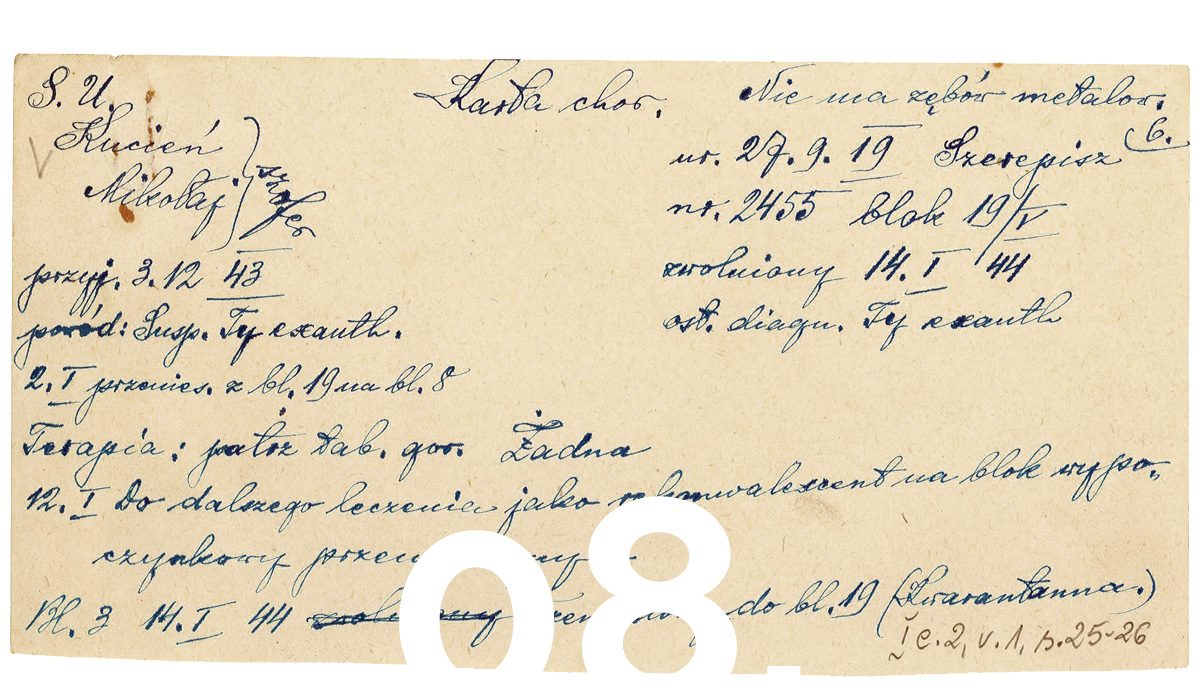
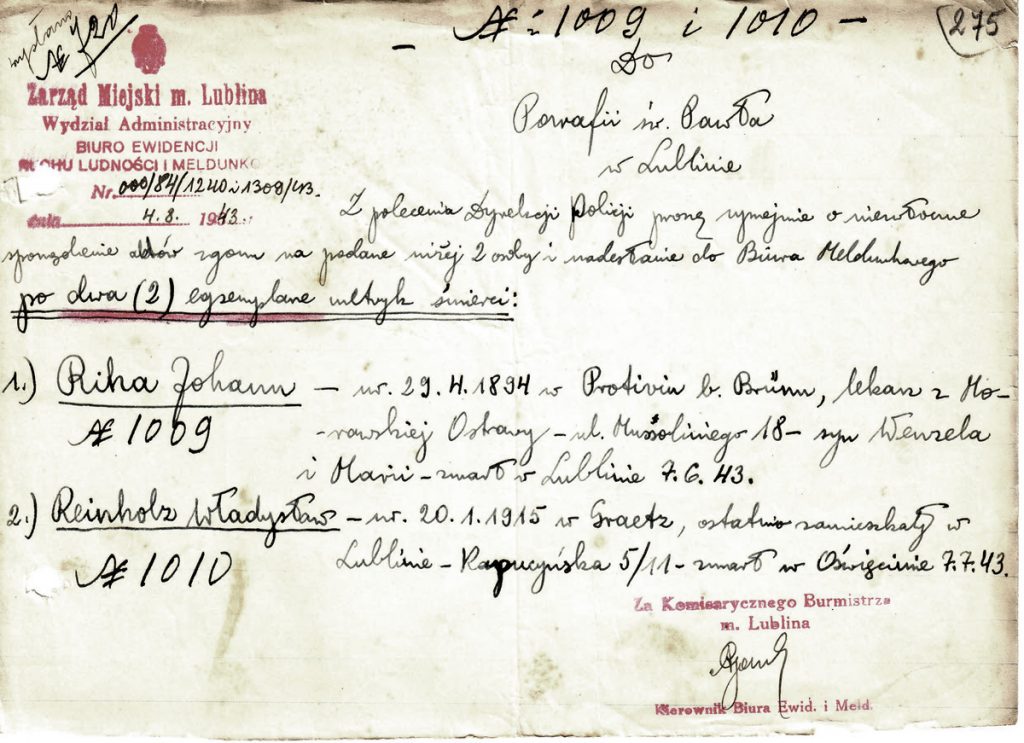

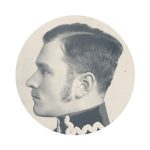
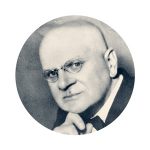


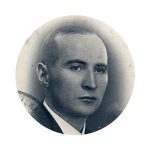
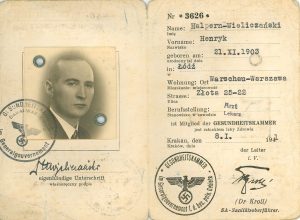

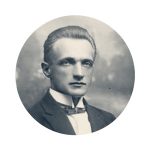
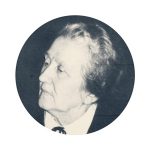

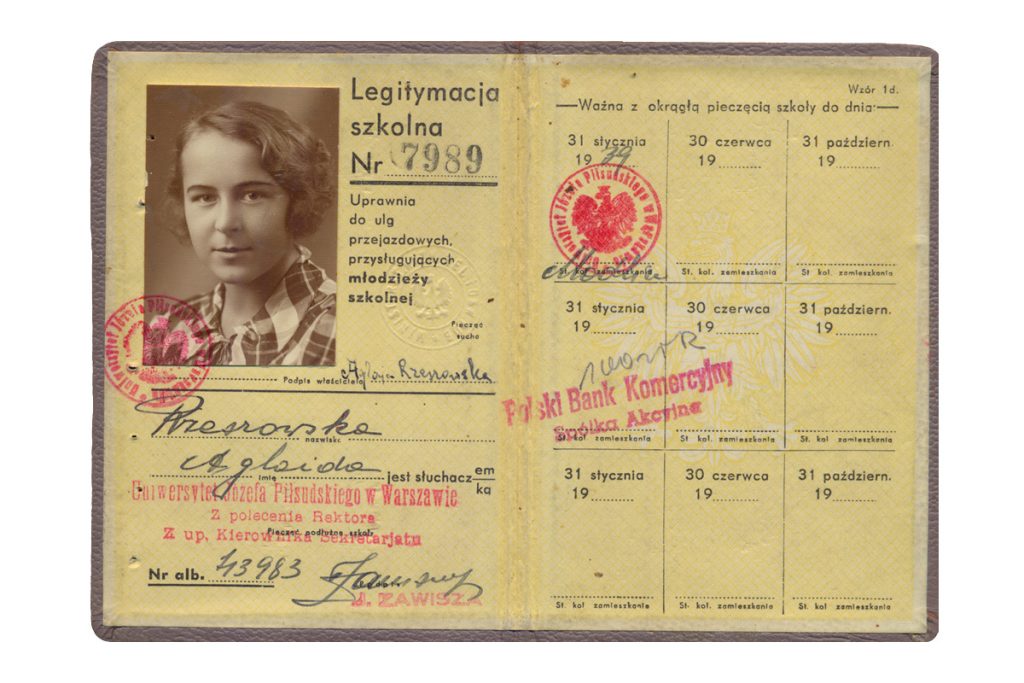
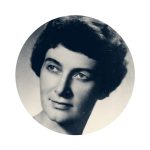 Hanna Narkiewicz-Jodko
Hanna Narkiewicz-Jodko